Samuel L. Myers - Race Neutrality: Rationalizing Remedies to Racial Inequality
Here you can read online Samuel L. Myers - Race Neutrality: Rationalizing Remedies to Racial Inequality full text of the book (entire story) in english for free. Download pdf and epub, get meaning, cover and reviews about this ebook. year: 2018, publisher: Lexington Books, genre: Politics. Description of the work, (preface) as well as reviews are available. Best literature library LitArk.com created for fans of good reading and offers a wide selection of genres:
Romance novel
Science fiction
Adventure
Detective
Science
History
Home and family
Prose
Art
Politics
Computer
Non-fiction
Religion
Business
Children
Humor
Choose a favorite category and find really read worthwhile books. Enjoy immersion in the world of imagination, feel the emotions of the characters or learn something new for yourself, make an fascinating discovery.
- Book:Race Neutrality: Rationalizing Remedies to Racial Inequality
- Author:
- Publisher:Lexington Books
- Genre:
- Year:2018
- Rating:4 / 5
- Favourites:Add to favourites
- Your mark:
Race Neutrality: Rationalizing Remedies to Racial Inequality: summary, description and annotation
We offer to read an annotation, description, summary or preface (depends on what the author of the book "Race Neutrality: Rationalizing Remedies to Racial Inequality" wrote himself). If you haven't found the necessary information about the book — write in the comments, we will try to find it.
There are wide racial disparities in virtually every sphere of economic life. African American workers earn less than whites. They are more likely to be denied loans than whites. Minority-owned businesses are less likely to win lucrative bids on state and federal contracts than are white male owned businesses. Black children are more likely than whites to be reported to child protective services for neglect or abuse. There are even huge disparities in downing rates between blacks and whites. What to do about these disparities? There is a fundamental disagreement about the appropriate remedies to these varied indicators of racial inequality. Part of the disagreement stems from differences in public perceptions about the underlying causes of the inequality. But, another form of disagreement relates to the opposition to the remedy of choice during much of the 1970s and 1980s: Affirmative Action. Race conscious remedies -- like affirmative action policies in hiring, college admissions, and business contracting -- suffer from legal and constitutional challenges, compounded by hostility from the majority of Americans. The alternative race-neutral remedies attempt to address racial disparities without directly targeting benefits exclusively to racial minority group members. In doing so, race-neutral remedies putatively help minorities without hurting majority group members.
The authors of Race Neutrality: Rationalizing Remedies to Racial Inequality make the case that policy analysts should shift from a focus on whether a remedy is race-conscious or not to a focus on the underlying problem that the alternative remedies is attempting to resolve. This type of rethinking of the problem of racial inequality will reveal that sometimes race-neutral remedies hold great promise in reducing disparities. Often, however, race-neutral remedies fail to do what they are intended to do. The authors challenge the reader to think about why race-neutral remedieswhile desireable on their facemight fail to resolve protracted and persistent patterns of racial inequality in market and non-market contexts.
Samuel L. Myers: author's other books
Who wrote Race Neutrality: Rationalizing Remedies to Racial Inequality? Find out the surname, the name of the author of the book and a list of all author's works by series.

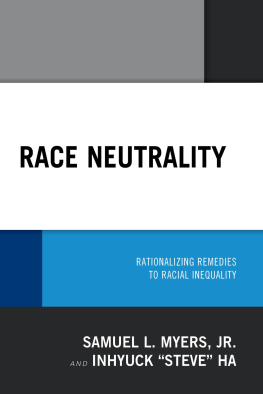


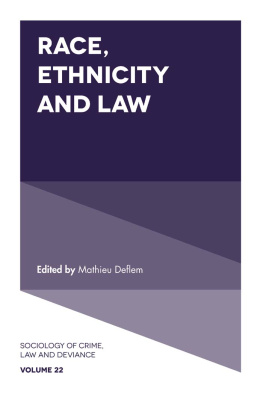
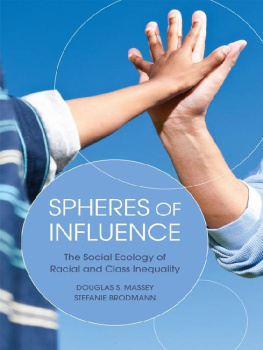
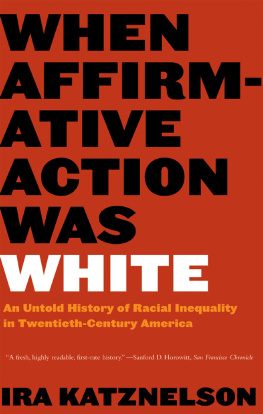
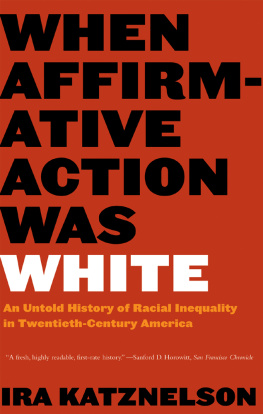

 The paper used in this publication meets the minimum requirements of American National Standard for Information SciencesPermanence of Paper for Printed Library Materials, ANSI/NISO Z39.48-1992.
The paper used in this publication meets the minimum requirements of American National Standard for Information SciencesPermanence of Paper for Printed Library Materials, ANSI/NISO Z39.48-1992.